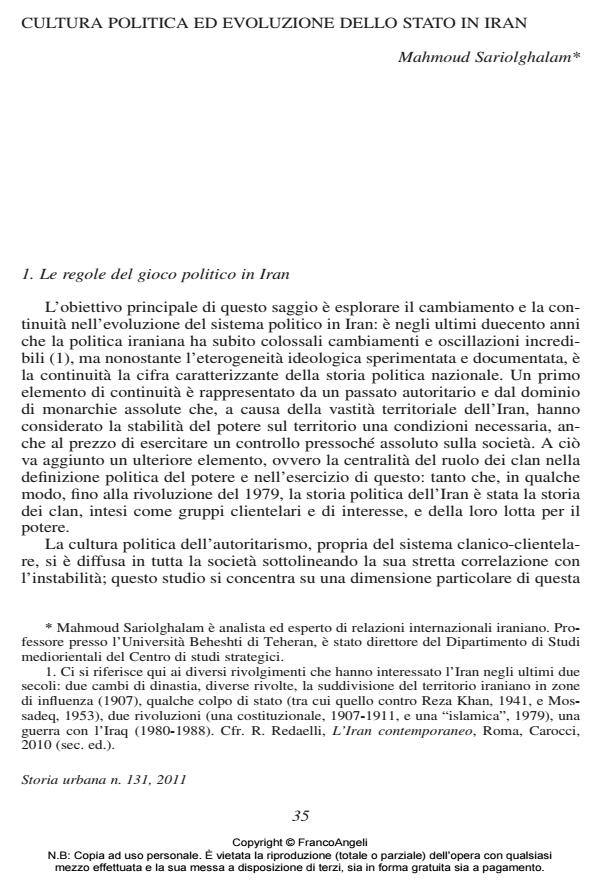Political culture and state evolution in Iran. A cultural history approach
Journal title STORIA URBANA
Author/s Mahmoud Sariolghalam
Publishing Year 2011 Issue 2011/131
Language Italian Pages 17 P. 35-51 File size 487 KB
DOI 10.3280/SU2011-131003
DOI is like a bar code for intellectual property: to have more infomation
click here
Below, you can see the article first page
If you want to buy this article in PDF format, you can do it, following the instructions to buy download credits

FrancoAngeli is member of Publishers International Linking Association, Inc (PILA), a not-for-profit association which run the CrossRef service enabling links to and from online scholarly content.
The article focuses on the evolution of the Iranian governance, considering the post-1979 period, and investigating the weaknesses and the strengths of the Iranian state structures. Authoritarianism and a peculiar geopolitical role are of particular importance in explaining why this country has experienced such a tumultuous past. In particular, its geographical position has been the cause of the over-emphasis of the threat to nation al security, whilst the economic growth and political efficiency have never been perceived as priorities. The essay considers the issue of national identity too. The Iranian identity is basically contested, as it drowns down its roots from three different contexts, namely nationalism, Islam and a philosophical and ancient intimacy with Western intellectual history. These "sources of identity" are in perpetual conflict. This identity and a contested model of government make the national political culture and governance instable.
Keywords: Identity crisis Political culture Governance
Mahmoud Sariolghalam, Cultura politica ed evoluzione dello stato in Iran. Un approccio di storia culturale in "STORIA URBANA " 131/2011, pp 35-51, DOI: 10.3280/SU2011-131003